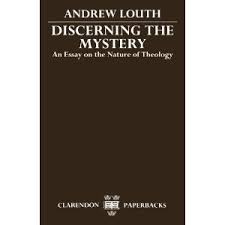Each year my New Testament intro students watch a one hour video of N. T. Wright explaining the Gospel in a lecture entitled “Kingdom and Cross: The Forgotten Message of the Gospel.” Wright uses an analogy of four “speakers” in four corners of the room that need to be balanced so the entire musical score is heard in its fulness, as it is intended to be.
in a lecture entitled “Kingdom and Cross: The Forgotten Message of the Gospel.” Wright uses an analogy of four “speakers” in four corners of the room that need to be balanced so the entire musical score is heard in its fulness, as it is intended to be.
Two of those Gospel speakers, Wright claims, are turned up too far in American evangelicalism
- Jesus is divine.
- Jesus initiates the Christian movement.
Wright isn’t denying these things (don’t you worry, Tom Wright fans). He is saying the church has tended to put too much–or the wrong kind–of emphasis on them. (And watch the video for yourself if you want to see more about this.)
Two other speakers are turned too far down and, Wright contends, need to be turned up.
- Jesus is the climax of Israel’s story.
- The Gospel confronts and challenges world powers.
This last speaker has been turned WAAAAAAY up for me these last few days as we watch what the latest iteration of maniac dictators, Kim Jong Un, is doing to his fellow humans, specifically executing 33 Christians.
In western culture, Christians are often seen as perpetrating violence, discrimination, and other power moves. These criticisms are too often (not always) deserved, as they reflect back to us the tendency of the western church to engage in culture wars and protect the ground gained. And it doesn’t help when Christians claim to be “persecuted” when someone says “X-mas” or tries to teach them about evolution.
What the casual observer in the west hardly ever hears about, however, is how Christians elsewhere are often the target of violence in the most extreme sense, perpetrated either by the government or by groups toward whom the government turns a blind eye.
As we see now in North Korea, some rulers are afraid enough of Christians to want to kill them. Observers of western Christianity are too often simply annoyed enough with Christians to tune them out.
Back to Wright’s fourth speaker. What does it look like for the church to turn the fourth speaker up higher, to call to account this evil regime–and not only because this nut job is killing Christians, although that is heinous, but because he is killing–period–and doing many other things that dehumanize people whom Christians believe are made in God’s image?
Many Christian groups and churches are actively involved across the world in working tirelessly for what the Bible calls “justice” and “righteousness.” I wonder, though, what it would look like if working for justice and righteousness is what Christians were primarily known for–rather than what they are actually known for: raging, handwringing critics of evolution, abortion, the myth of global warming, same sex couples, and the democratic party.
Remember that Jesus guy–our leader–was treated with injustice by a powerful regime, brutally tortured, and then executed in the manner of the day. These 33 North Korean Christians have more in common with Jesus than many of us do–including myself.
Why aren’t we known across the board as the people who rage against abuse of power and the suffering that comes from it? Why aren’t we the ones that others look to and say, “I’m not really on board with what these Christians believe, but I know I can count on them to not stand for it when they see people suffering at the hands of corrupt and unjust rulers”?
Again, I know many Christians the world over (individuals and organizations) have devoted their lives to alleviating suffering and calling power structures to account for what they are doing in God’s world. But why aren’t we known primarily for what would be a very Jesusy thing to be known for?
Don’t blame media bias. Christians are complicit in creating it.
If anything, reading about what is happening in North Korea has reminded me that things that often occupy our time, things that get us all hot and bothered, are of very little consequence in comparison.
















